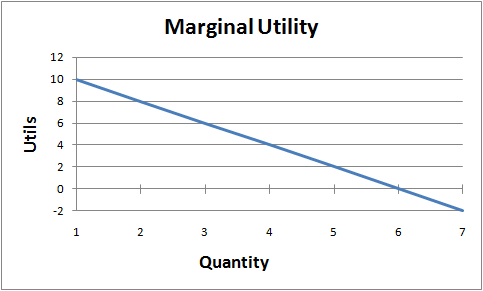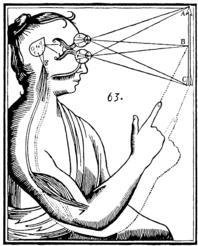Science, Ethics, & Individual Sovereignty

Darwinian Natural Law Theory
The word "nature" (physis, in Greek) was a philosophical term that literally referred merely to shared characteristics. In theology, the Father, Son, and Holy Spirit are regarded as three persons that share the same nature (physis). The three persons share their god-ness in common. Likewise, humans were conceived in similar terms by theologians. Each individual person of the human species shares in human nature, just as the individual persons of the Trinity share in divine nature. Christ was conceived as a sort of hybrid, being a human and god. Christ was said to be both of the human species, sharing in human nature, and of the divine species, sharing in the divine nature. The concept of "nature" as used by early theologians literally just meant "that which they have in common," so anything that the Father and Son shared in common was an aspect of being that was attributed to the divine nature, whereas the distinct individual characteristics that differed from one person to the other were regarded as personal attributes.
It has become popular for people to deny the existence of human nature. To a certain extent, this is an understandable revolt against the rigid essentialism of Platonistic and Christian philosophy. Neo-Platonists and Christians have told us for years that everything has an immutable form, that animals were created "according to their kind," etc. We now know that this is humbug. Animals do not have immutable natures established by divine decree before the creation of the world. Humans and other animals do not have immutable natures, but that does not mean that they do not have natures at all. They have natures, but their natures can evolve. Modern evolutionary theory tells us that species tend towards stability and equilibrium. Species have certain things in common that justifies classifying them as part of a single group. This equilibrium creates a species with a common nature that we can classify scientifically. Species generally only evolve and experience significant changes in their essential nature when periods of punctuated equilibrium occur. Because humans are a species with a global community where genetic information is passed around relatively freely, humanity exists in a state of equilibrium and stability. Human nature is relatively fixed.

Natural selection serves as a "blind god" or "blind watchmaker." (Cf. Richard Dawkins) Human nature was not created by God or intelligent design. Instead, specimens that had characteristics and attributes that helped them survive were able to live longer and reproduce. Specimens with less favorable characteristics and attributes were not able to live as long or reproduce as much (or at all, in some cases). Natural selection is like a "blind god," carving away at species until they reach a state of equilibrium. Thus, natural selection gives rise to the various natures of species without any sort of design or intentionality. The forces of evolution and natural selection carved away at what would become human nature, cutting off the unfavorable parts and keeping the favorable ones, until stability/equilibrium was reached and we were left with human nature as it is today. There's no intentionality in it. It is just that the specimens with characteristics that help them survive longer and reproduce actually did survive longer and reproduce. The ones without those characteristics did not survive as long and reproduce, so they were eliminated by natural selection. Thus, we are left with modern human nature.
Natural law theory grounds human ethics in human nature. Human ethics is relative to the human species. It relates to what our species happens to value. Members of our species tend to share certain moral values. We value our own life, liberty, and possessions. We value happiness for ourselves, happiness for our loved ones, and happiness for others. We have a hierarchy of such values. Natural law theory attempts to base human ethics on the moral sentiments that are inherent in human nature.
Since Darwinism does not deny the existence of human nature, modern evolutionary theory is perfectly compatible with natural law theory. Of course, the Darwinist will have to reject certain opinions of religious natural law theorists which happen to be irrational or based on false assumptions, but there is no reason to reject natural law theory per se. The basic foundation for a Darwinian theory of natural law was laid down by Darwin himself in The Descent of Man. There are basic moral sentiments engrained in human nature that happen to be biologically determined. We inherited these moral sentiments from our ancestors and share them in common with other members of our species. We dislike suffering and we value happiness for ourselves. We also sympathize with the suffering of others and we become unhappy when we see others suffer. Adam Smith observed that these are among our most basic moral sentiments.
"How selfish soever man may be supposed, there are evidently some principles in his nature, which interest him in the fortune of others, and render their happiness necessary to him, though he derives nothing from it except the pleasure of seeing it. Of this kind is pity or compassion, the emotion which we feel for the misery of others, when we either see it, or are made to conceive it in a very lively manner. That we often derive sorrow from the sorrow of others, is a matter of fact too obvious to require any instances to prove it; for this sentiment, like all the other original passions of human nature, is by no means confined to the virtuous and humane, though they perhaps may feel it with the most exquisite sensibility. The greatest ruffian, the most hardened violator of the laws of society, is not altogether without it."—Adam Smith (The Theory of Moral Sentiments)
Fact-Value Entanglement, Subjective Value, & Critical Rationalism
Sam Harris speaks of ethics in terms of the moral landscape. He starts with the axiom that happiness is good and suffering is bad. Thus, he asserts that a world in which there is the greatest amount of suffering for the greatest number of individuals is obviously the worst possible world. Every other possible would is obviously better than that. A world in which there is no suffering and unlimited happiness for all is obviously the best possible world. Every other possible world is worse than that. Then Harris uses the illustration of a "moral landscape," where there are mountains and valleys. The mountain tops represent the "peaks" of human happiness, while the valleys represent the "depths" of human despair and misery. There are many peaks and valleys, meaning that there are various ways to affect happiness and suffering. The goal of ethics is to maximize happiness and minimize suffering to the greatest possible extent.
I mention Sam Harris' notion of the "moral landscape" simply because I think it is a useful model or paradigm (or reality tunnel if you follow Tim Leary and Robert Anton Wilson). The moral landscape is a pair of glasses through which you can see the world a little more clearly. Perhaps it isn't the best set of lenses, but it's hard to find perfect lenses. I think the moral landscape and natural law theory are complementary perspectives that help one to understand ethics in a rational and "objective" way.

Sam Harris has introduced some of the ideas of Hilary Putnam to a wider audience. He has popularized ideas that were previously only familiar to academics. Philosophers since the enlightenment have maintained a strict is-ought dichotomy. The philosopher David Hume drew a distinction between positive statements (i.e. what is) and normative statements (i.e. what ought to be). Hume asserts that there is no possible way to get from what is to what ought to be. Thus, he says, you can't have any sort of "objective" morality. Hilary Putnam rejects this idea.
Sam Harris, following in the footsteps of Putnam, does a good job of refuting this idea. It really all ties into Kant's distinction between a hypothetical imperative and a categorical imperative. A hypothetical imperative is a commandment of reason that only stands conditionally (e.g. if you want to win the race, you ought to run fast). A categorical imperative is an unconditional moral obligation that is binding regardless of anything else. The way to get from the is to the ought is to realize that there simply is no such thing as a categorical imperative. All moral imperatives are hypothetical imperatives. Sam Harris says happiness is good, suffering is bad, and the goal of ethics is to maximize well-being (i.e. increase happiness and reduce suffering). We pretty much all agree that that is a good goal. There's no real reason to argue that. If there is someone that doesn't think maximizing well-being is a good goal, then that person is a sociopath and it isn't worth talking to them about ethics anyways. All moral imperatives then follow this form: since you want to maximize well-being, you ought to do such-and-such. Every moral statement is a hypothetical imperative. Consequently, there is no "is-ought problem".
The is-ought problem assumes the categorical imperative, which simply can't exist. Even upon theistic presuppositions, it just doesn't make sense. Assuming that God exists, the moral imperative would take a different form but it would remain a hypothetical imperative. The imperative shifts to this: Since God exists and will punish you and you don't want to be punished, you ought to do such-and-such. Or, alternatively, you could put the imperative this way: Since God exists and you want to please Him, you ought to do such-and-such. Even theistic morality boils down to a hypothetical imperative. If the premise is, then the “ought” logically follows. If the premise is true, then we've established a logical imperative.
Hilary Putnam rejected the is/ought dichotomy. Putnam asserts that the “is” and “ought” are intimately connected. Instead of a fact/value dichotomy, there is really a fact-value entanglement. All value judgments are judgments of facts and all judgments of fact involve value judgments. A person who respects logic has already made a value judgment about truth. You cannot logically prove the validity of logic. To do so would involve circular reasoning. The person who embraces logic has already made a value judgement about truth, evidence, coherency, etc. Yet facts and values are entangled in another way. Since all moral imperatives are hypothetical imperatives, all moral imperatives are contingent upon facts. Moral imperatives all follow a basic form, starting with the given axioms of human values, adding in relevant facts, and arriving at the conclusion of an ought: given premise x plus a fact as premise y, conclusion z logically follows as an imperative. Suppose you are in a burning house. You have two options: jump out the window into the pool or run back into the flames. Given the premise that suffering is bad (x), and adding the fact that coming into contact with fire causes suffering while water does not (y), it logically follows that one ought to jump into the water instead of jumping into the flame. Given that you want to avoid suffering, and the fact that this course of action is the best way to avoid suffering, it logically follows that this is the best course of action. Now, this can get more complex, but this is the basic form of all moral imperatives.

There is a hierarchy of human values. For instance, we value happiness, we value the absence of suffering, but we also have sympathy and value the happiness and well-being of others. Consequently, we can take a lesson from economics and import the subjective theory of value and analyse ethics in terms of marginal utility. (Cf. marginalism & the law of diminishing marginal utility) A shot of whisky makes me happy. Each additional shot of whisky brings less additional happiness. The value of each additional shot decreases as I consume more. At some point, another shot of whisky will reduce my happiness. And if I continue to drink past that point, the whisky will make me miserable and possibly kill me. Each person has a hierarchy of wants and desires, but the importance of those wants and desires changes in relation to how other wants and desires are satisfied or denied. I may value happiness (x), recognize the fact that sex makes me happy (y), and then conclude that I ought to be having sex (z). Okay, but then let's look to a real-world application. Suppose that I have a friend, Layla. I find Layla attractive, but I also care about her well-being and want her to be happy. Layla does not find me attractive and doesn't want to have sex with me. Should I still have sex with her? Now the logic of the moral problem becomes more complex: given that happiness is good for me (x1), and that I love my friend Layla and want her to be happy too (x2), plus the fact that I know raping her would make her unhappy (y1) and that I value her happiness over my own and would be unhappy if she were unhappy (y2), it logically follows that I ought to sacrifice the happiness that would result from having sex with her in favor of the happiness that results from respecting her wishes (z). Let's take another example involving sex. Given that I value my own happiness (x), and the fact that sex makes me happy (y1) and the knowledge that rape is wrong (y2), doesn't it follow that I should have sex with as many consensual partners as I possibly can? Well, now there are more variables to add to the equation. I also know that having sex indiscriminately increases my chance of catching an STD (y3), that some STDs are incurable and can lead to death or debilitating illness (y4), and that the potential death/suffering that could be caused by STDs is undesirable (y5), etc. We could also incorporate time preference into our ethical analyses. Having a lot of sex with different partners will bring me immediate gratification and happiness in the short-term, but will likely lead to catching an STD that will cause suffering in the long-term. Is the immediate pleasure valuable enough to me that it justifies subjecting myself to the future suffering? Having sex brings pleasure, but delaying gratification can cause the orgasms to be more powerful, so now I must take into consideration whether greater pleasure at some future point is preferable to the lesser pleasure that might be brought by having sex a dozen times a day.
Now, it is not the case that every person figures up the appropriate course of action along such logical lines. In reality, a person will often subconsciously decide upon a course of action, but the subconscious decision-making should follow this sort of reasoning. Additionally, a person may not know all of the relevant facts, so they may leave out important variables as a result. Humans are finite beings with finite brains. We cannot know every fact. Our knowledge is always limited. All human knowledge is conjectural. If we discover new evidence, then we have to revise our conclusions. I may make a judgment based upon incomplete knowledge, then learn new variables that should have been entered into the equation, and ultimately determine that the conclusion I originally reached was invalid. I may take a particular course of action based upon the best evidence available at the time and later find out that my course of action was not the most ethical and logical course of action. New evidence means new conclusions. Thus, the science of ethics ought to follow the same critical rationalist epistemology as any other science. (Cf. Karl Popper & critical rationalism)
Is Ethics "Objective" or "Subjective"
The answer to this question is a bit complicated. Ultimately, the axioms of human ethics are subjective. However, they are simultaneously subjective and universal! All humans have inherited certain basic moral sentiments from their ancestors and those moral sentiments are rooted in human biology. Each individual human shares a common biological nature with all other humans as a result of the fact that they are part of the same species. Certain subjective human values are universal throughout the human species and have an objective basis in human biology. Since human nature is biologically determined, and biology is determined by physics, it follows that subjective moral sentiments have an objective basis. Consequently, we can say that ethics is simultaneously subjective and objective in some sense. Furthermore, we can say that morality is objective insofar as every moral imperative can be reduced to a hypothetical imperative that is directly contingent upon facts and objective evidence. There is a definite fact-value entanglement involved in all moral predication.

Furthermore, the subject-object dichotomy and the mind-body dichotomy are human constructs devised by philosophers. The subject-object dichotomy appears to be somewhat fictitious and to lack any solid basis in reality. The distinction is good insofar as it seeks to bring attention to the fact that there is a difference between facts and opinions, but it has also been a serious impediment to logical thinking. In rejecting the subject-object dichotomy, I do not reject it entirely. However, I hold that there is a definite subject-object entanglement. The subject and the object are intrinsically related in such a way that the subject cannot even be conceived of apart from the object. The subjective experiences of man are rooted in the objective. The physical state of the brain is directly related to the subjective experience of the individual. The subjective experience of happiness is directly related to objective physical/chemical phenomena in the brain. You can alter a person's subjective experience by directly changing the chemicals in their brain. Happiness is a subjective experience that results from chemical processes. Endorphins, serotonin, dopamine, and oxytocin bring about this subjective experience. The mind and the brain are interconnected in such a way that consciousness can only be conceived as something that is an entangled phenomenon. The mind and the body are inherently related and entangled. There is a mind-body entanglement and a subject-object entanglement; and until you take this entanglement into consideration, the whole question of whether something is "subjective" or "objective" is a moot point. Much of the debate about subjective vs. objective morality seems to be nonsensical bickering to me.
Individual Sovereignty: Self-Ownership (Within Certain Limits)
Generally speaking, all humans share certain values. We all value our own comfort. We value our own happiness. We dislike suffering, so we value its absence. We naturally sympathize with the suffering of others, so we value the minimization of suffering whenever possible. Our sympathy causes us to suffer when others suffer, so we value the minimizing of suffering for others too. We value happiness. We tend to be happier when others are happy, so we value happiness for others. These are some of the basic human values or moral sentiments that humans generally have in common. Natural law theory attempts to base ethics on these universal human values or moral sentiments that are engrained in human nature.

There seem to be some objections to the idea of individual sovereignty or self-ownership, which I have appealed to in my arguments for anarchism. Yet, I think we can firmly establish this principle from more basic and axiomatic principles of ethics. When talking about libertarian theory and political philosophy, we tend to presuppose individual sovereignty as if it were axiomatic. While it is sort of an "axiom" for libertarian theory, it is an axiom that must be established. However, I don't think it is too difficult to establish the "axiom" from basic ethical principles.
Under the sort of libertarian natural law theory that holds individual sovereignty or self-ownership as an ideal, there are three main natural rights: to life, liberty, and possessions. These three rights are essentially coterminous with self-ownership. And these rights can be based in the most elementary principles of ethics. Human ethics attempts to maximize human happiness and minimize human suffering. In order for humans to be happy, they must be alive. Hence, the right to life. In order for a person to be happy, they must have the liberty to pursue their own goals. The pursuit of happiness is predicated on the liberty to choose one's own way in life. Hence, the right to liberty. Finally, in order to pursue happiness, a person must have the right to utilize objects and resources. If a person is deprived of access to material things, then they are thereby deprived of liberty. If one person monopolizes the land and the food produced on it, they thereby deprive others of access to the materials necessary for sustaining life and pursuing happiness. Liberty and possession are necessarily bound together. Hence, the right to possessions.
The rights to liberty and possessions must be qualified though. Man naturally values the happiness of all mankind. The goal of human ethics is to maximize happiness and minimize suffering for all. It follows that maximizing the happiness of one person at the expense of others is unacceptable. In order to maximize human happiness, we must allow liberty for all. However, liberty for all necessarily restricts liberty for the individual. This is where the law of equal liberty comes in. One person's liberty ends at the point where it begins to infringe upon the liberty of another. Each individual ought to have the liberty to do whatsoever they want, so long as they do not infringe upon the equal liberty of others. People must be prohibited from enslaving other people. Likewise, the right of possession must be limited in the same way. A person's right to possessions must allow for the equal right of others to possess things. It would be illegitimate for a person to monopolize all the land, all the food, or all the water. The liberty to use resources as one sees fit must be limited by the equal liberty of others to have access to the same resources. A person can legitimately take as much food as they want into their own personal possession and keep it exclusively for themselves, as long as there is enough left for everybody else to enjoy the same right. A person can take a piece of land as their own exclusive possession, so long as every other person has equal access to similar land on similar terms. Furthermore, it makes sense for people to set limits upon the pursuit of happiness through liberty and possessions. If I set a limit on my pursuit of happiness, so that it does not interfere with the similar pursuits of others, then that is likely the best way to get people to respect my rights and not interfere with my own pursuit of happiness. And if we establish formal institutions to guarantee that no one so interferes in the rights of any other, that is logically the greatest guarantee of my own security in my ability to pursue happiness via liberty and possessions. A fascist dictator is never really secure in his ability to pursue happiness, as there is always some assassin ready to eliminate him. The powerful only have a facade of happiness.
I think I have sufficiently demonstrated the legitimacy of the right of sovereignty of an individual over their own person (body/mind) and possessions. This right of individual sovereignty or self-ownership must be taken in conjunction with the law of equal liberty. Self-ownership is qualified by the law of equal liberty. I think the political system that naturally follows from the principles that I've laid out here would be some sort of libertarian social democracy or anarchist social democracy.